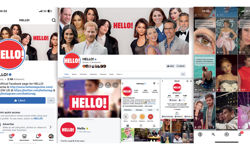In the future, magazine journalists will either be ‘hacks’ or finding some other work
When TV and radio producers say, "how would you like to be described?", I usually say "hack". They think I'm joking and we settle for something vanilla like "writer and broadcaster".
I do, in a way, mean it when I say hack. Hack separates the real people from the pretenders. People who scribble for a living know it's a term of respect.
People who don't scribble for a living think it's disrespectful and indicates bad journalism. That's presumably what Hugh Grant and Steve Coogan thought when they named their pressure group. I don't see it like that and it may be one of the many tactical errors they've made. Hack is an old term which derives from hackney carriage. It indicates a writer who plies for hire and will write for all kind of people providing they pay him. In the future, I think journalists may be quite happy to call themselves hacks. The rest will be finding some other job.
I think we may well come to look back on the twenty years between 1980 and the end of the 20th century as a strange aberration, a period when large public companies maintained publishing operations with large staffs who turned up every day and did the same as they had done the day before, who had long term career paths mapped out, company cars and job security and could hope that the firm would keep on devising new products which would provide them with fresh job opportunities. When we look back, we'll wonder if our memories have been playing tricks on us.
There will still be a handful of big companies, but I suspect that they won't be wanting to hang on to their staff. They'll be perfectly happy to see a lot of turnover. You have far more problems caused by people hanging on too long than people going too quickly. In the future, companies will no longer be seeking people who can execute the old plan. They want people who have a new plan and know how to put it in action. They'll need to keep bringing in people who've learned things that the companies don't already know. They'll need to tap into skills that they didn't even realise they needed and then, when it's fresh skills they need, dispense with those services just as quickly as they got them in.
This is of course richly ironical and points out the Fallacy Of Planning - or map-making in an earthquake zone, as I've heard it described. When there were lots of jobs for journalists, there were very few courses turning them out. Now that there are very few jobs for journalists, they're turning them out like they really should be turning out chemical engineers and plumbers.
Some of those graduates email me asking if I know of any staff jobs, which is a bit like asking me when interest rates are going to rise. In the future, I shall send them to see somebody like Anthony Teasdale, a young journalist I was talking to the other day. I asked Anthony to describe his average day.
Busy day
"I do music for Channel Four. If Nuts need a deputy editor, I go in for a week. I do bits for Robbie Williams's clothing label. If you go to my website (anthonyteasdale.com) you'll see the stuff I do for brands. Then I do Umbrella. This is a blog, a magazine, a newsletter, a Facebook page, an affiliate links page. I just get up in the morning and I do it."
His last job was preparing an app for Virgin Media through Redwood. It was cancelled a couple of weeks before it was supposed to go on the iTunes store. He didn't complain. He's probably no fan of Norman Tebbit but he got on his metaphorical bike. I asked him how he felt about being described as a hack. He was perfectly happy. "I am a hack. I will do anything as long as I can avoid having a proper job."
I met him through his magazine Umbrella. He started it in 2010 with designer friend Matt Reynolds. The idea was to provide the men's market with something more than birds and beer. He took the idea to the major publishers and got no interest so he decided to try it themselves. This was not an option available to frustrated journalists with magazine ideas in the past.
"It's never been on paper. Not because I don't like paper. It's on a page turner app because we couldn't afford to do it any other way." He claims that the last issue reached 70,000 people and he's got some ads in there. He suffers from the same problem that anyone with an app does. When he's on Issuu's front page, he gets a lot of interest. When he's not it's like he's been banished to the outer darkness. This is the same problem bands have with iTunes. If you're not in the shop window, you may as well not exist.
There are many things I don't understand about Umbrella. Why they bother making up pages the traditional magazine way. How they can possibly sell advertising at a decent rate. Why do they bother offering a "paper version" for the few loons who might want to order such a thing. Won't they just in the end stand or fall on the standard of their blog?
But here's the interesting thing. Teasdale's attitude. His days are filled with a combination of things he does to pay the bills, things he does because he enjoys them, things he does because he thinks they might lead somewhere and lots of things that come in between. I looked on the four web sites where he maintains a presence and in each case he had posted something in the last few hours. This feels to me more like the magazine journalism of the day after tomorrow than any other version I've heard. And in another important respect. He's not making any money yet but he's not letting that stop him.
He sees the future in delivering his products free to consumers and delivering those consumers to brands for a fee. "Content is more effective than advertising and a whole lot cheaper and that's what we as journalists have to do."
This is not the only way to the future but it's certainly one. But it's only for those who get up early in the morning and don't sit there waiting for the phone to ring.
Just do it
Which brings me to Spare Rib, the venerable feminist magazine which an alliance of younger feminists and old hands are planning to re-launch in May. They're seeking backers to launch first a website and then a magazine. I always think that in this day and age you should never announce what you're going to do. You should simply do it, in whatever form your budget allows you to. If it works, you'll be able to graduate to a more expensive format later. Nobody ever waited to do anything on the web.
No More!
The closure of More! after twenty five years is sad for those people who may lose their jobs but it's not as if it hasn't been coming. When we launched it, the default position of most young women's magazines was a model on the cover and wide range of features and fashion content inside. The thing that really ate the traditional women's market was the establishment of celebrity as a prism through which absolutely everything had to be viewed. More! ended up fishing in the same pool and it was never going to win there.
Whenever a magazine like More! closes, I'm struck by the fact that the teen magazines of yesteryear seem to have been more sophisticated in their ideas than the sophisticated magazines of today. If you look in the women's magazines of today, they've got the DNA of magazines like Smash Hits and More! running right through them. It's not just that they're staffed by people who got their start on teenage magazines back when the grown-up magazines wouldn't even look at them. It's also because the teenage magazines of the 70s and 80s innovated because there was nothing to lose by doing so. They were also prepared to do things and use language that would have had the editors of Fleet Street papers of the time reaching for the smelling salts. The same editors who have now got the gloves off and are slugging it out down in the sawdust for every last bit of scandal and rudery. Even at its most eye-wateringly frank, I'm not sure More! ever ran a piece about Cameron Diaz trimming Gwyneth Paltrow's bikini line. Today, that's in the Mail. But it's OK. Diaz has previous here because she discussed intimate shaving on Graham Norton's show. The last time I looked, that was on BBC1.












